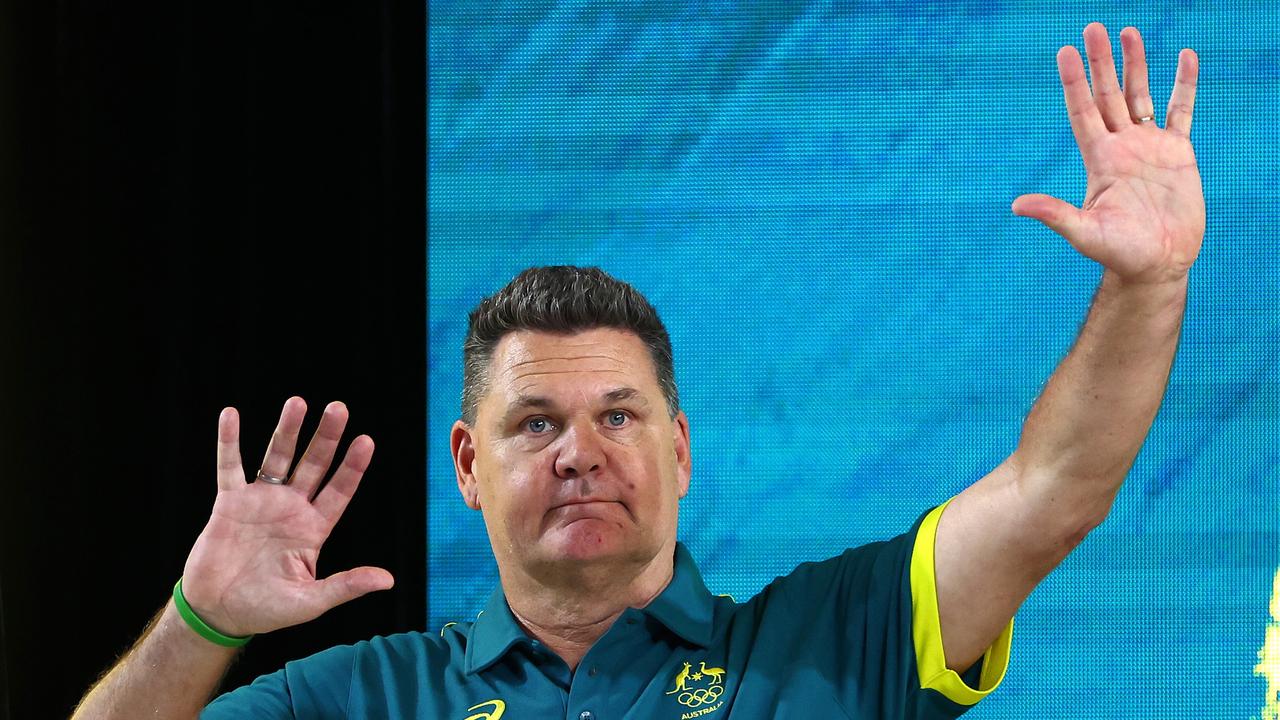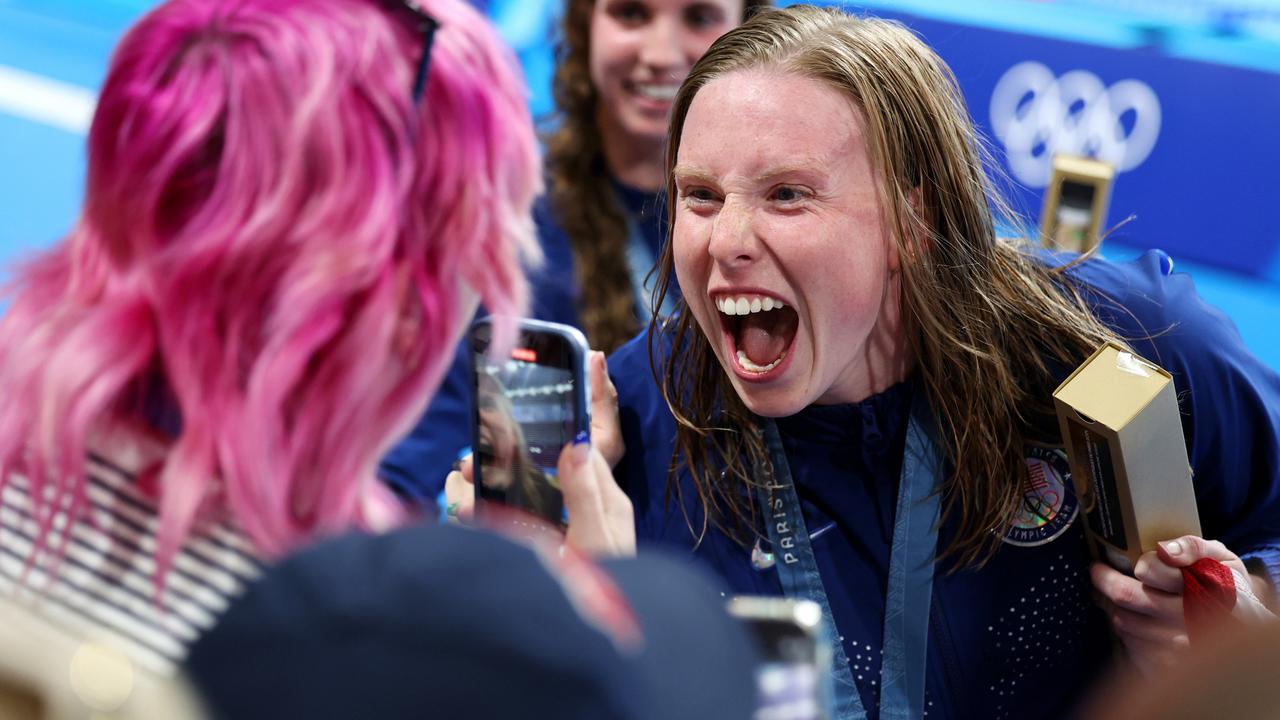2024 Paris Olympic Games: Why swimming hasn’t produced world records
Unless the French accidentally used a faulty tape measure and built a 51m pool, there is no simple explanation for the lack of world records being set in Paris, our swimming experts explain.
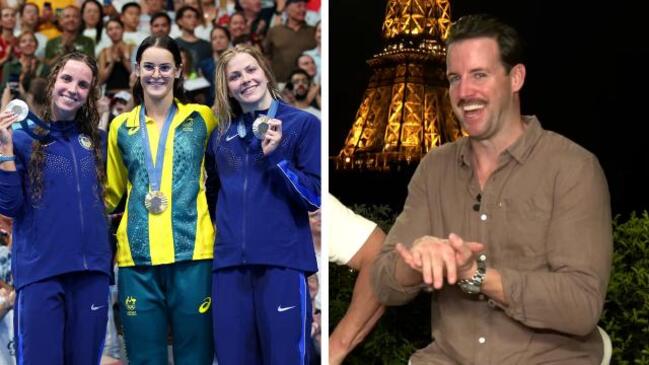
Swimming
Don't miss out on the headlines from Swimming. Followed categories will be added to My News.
Unless the French accidentally used a faulty tape measure and built a 51-metre pool, there is no simple explanation for the lack of world records being set in swimming at the Paris Olympics.
There’s no more exciting symbol on the electronic scoreboard at an Olympic pool than when the letters WR are flashed next to someone’s time in the milliseconds after they have touched the wall – because it signals they have just posted the fastest race in history.
The crowds love it, the television audiences lap it up and it’s the ultimate icing on the cake for the swimmer who has just achieved it.
But almost halfway through the nine-day swimming competition at the La Defense Arena, there hasn’t been a single world record, raising questions about whether the fabled river of gold is a Parisian puddle.
“It’s a slow pool. It has to be a slow pool doesn’t it?” Australian sprint king Kyle Chalmers said. “But I’m a racer so it doesn’t matter whether I’m racing here in Paris or a local pool in country South Australia.
“It’s all about winning that race in the pool. Everyone has the same opportunity. Everyone has a lane, so we’re all swimming in the same pool. It’s not like some people are sending their times in from trials or anything like that.”
Plenty of theories have been emerged about why the pool is “slow”, including speculation about whether the cardboard beds in the athletes’ village and problems with the transport system are leaving swimmers knackered. Another theory that’s getting traction is that the temporary drop-in pool is too shallow, because it’s 2.2m deep, while most Olympic pools are usually between 2.5m-3m.
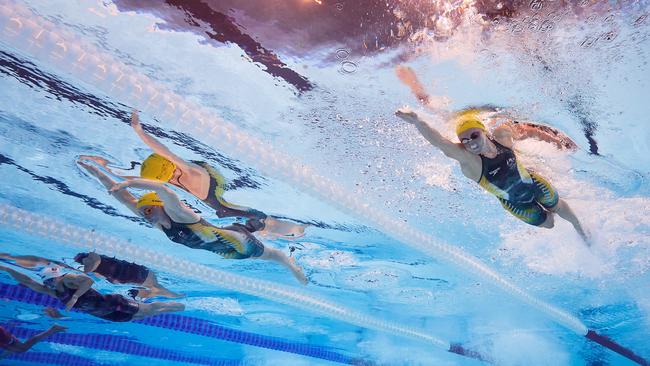
But few people in the sport agree that there is a single factor that determines whether a pool is fast or slow, because the general consensus is that it is a combination, partly technological, partly psychological.
Romanian teenager David Popovici, who won gold in the 200m, said he wasn’t buying into any conspiracy theories.
“It’s just a pool,” he said. “It’s a pool like any other pool.”
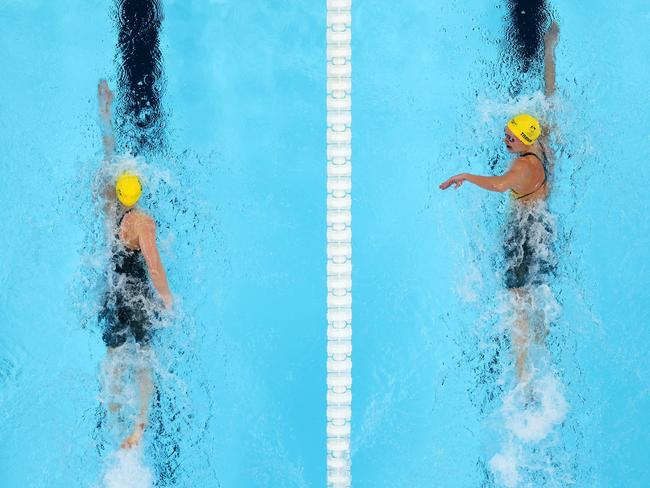
American legend Katie Ledecky said she didn’t think it was a slow pool.
“I’ve heard the rumblings, but at the end of the day, we’re here to race,” she said. “We’re all fast swimmers, so we make the pool as fast as we want it to be and I’m not really thinking about it.”


